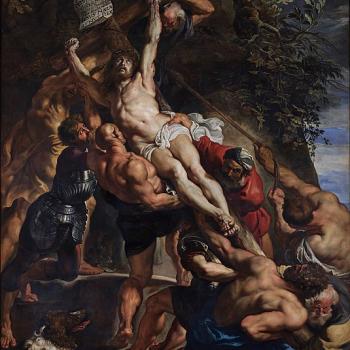You have probably heard of that other example of monstrous evil, Aliza Shvarts, the Yale student who created a work of “art” that consisted of repeatedly conceiving via artificial insemination and repeatedly giving herself an abortion. Though some have said it was a hoax, Shvarts insists that she really did this to yourself and to her unborn children.
Washington Post editorial page journalist Charles Lane goes into what she meant with her work of “art” and what this, in turn, tells us about what she had been learning at Yale. From The Art of Folly at Yale:
Among her “conceptual goals,” she wrote in the Yale Daily News, was “to assert that often, normative understandings of biological function are a mythology imposed on form. It is this mythology that creates the sexist, racist, ableist, nationalist and homophobic perspective, distinguishing what body parts are ‘meant’ to do from their physical capability.” Shvarts wanted to show that “it is a myth that ovaries and a uterus are ‘meant’ to birth a child.”
Lane segues into a review of a book by a Yale professor who protests what his colleagues have done to the humanities:
Last year, Anthony T. Kronman, the former dean of Yale’s law school, published “Education’s End: Why Our Colleges and Universities Have Given Up on the Meaning of Life.” This superb book traces the historical rise and fall of the humanities, which, Kronman writes, “are not merely in a crisis. They are in danger of becoming a laughingstock, both within the academy and outside it.”
In the past, Kronman argues, colleges and universities understood that undergraduates were hungry for answers to the Big Question: What is the meaning of life? And schools believed that not only religion but also higher education could help students find them. Humanities departments focused on great works of Western civilization, from Homer to Shakespeare. In short, Kronman writes, they gave their students a four-year seat in the unending “great conversation” of their civilization.
But between political correctness and the “publish or perish” ethic of the modern research university, the humanities have lost the desire and the capability to guide students’ spiritual quests. Instead, humanities professors stake their authority on an unrelenting critique not just of contemporary society but of meaning itself.
Once, humanities teachers cultivated perspective in their young charges; now, many of them instill grievance. The biological function of female reproductive organs can be portrayed as some kind of injustice. Or so Aliza Shvarts learned.
As I keep saying, where I am, at Patrick Henry College, we still cultivate the Humanities as this book says we should, as opposed to the inhumanities that dominate higher education elsewhere.
















